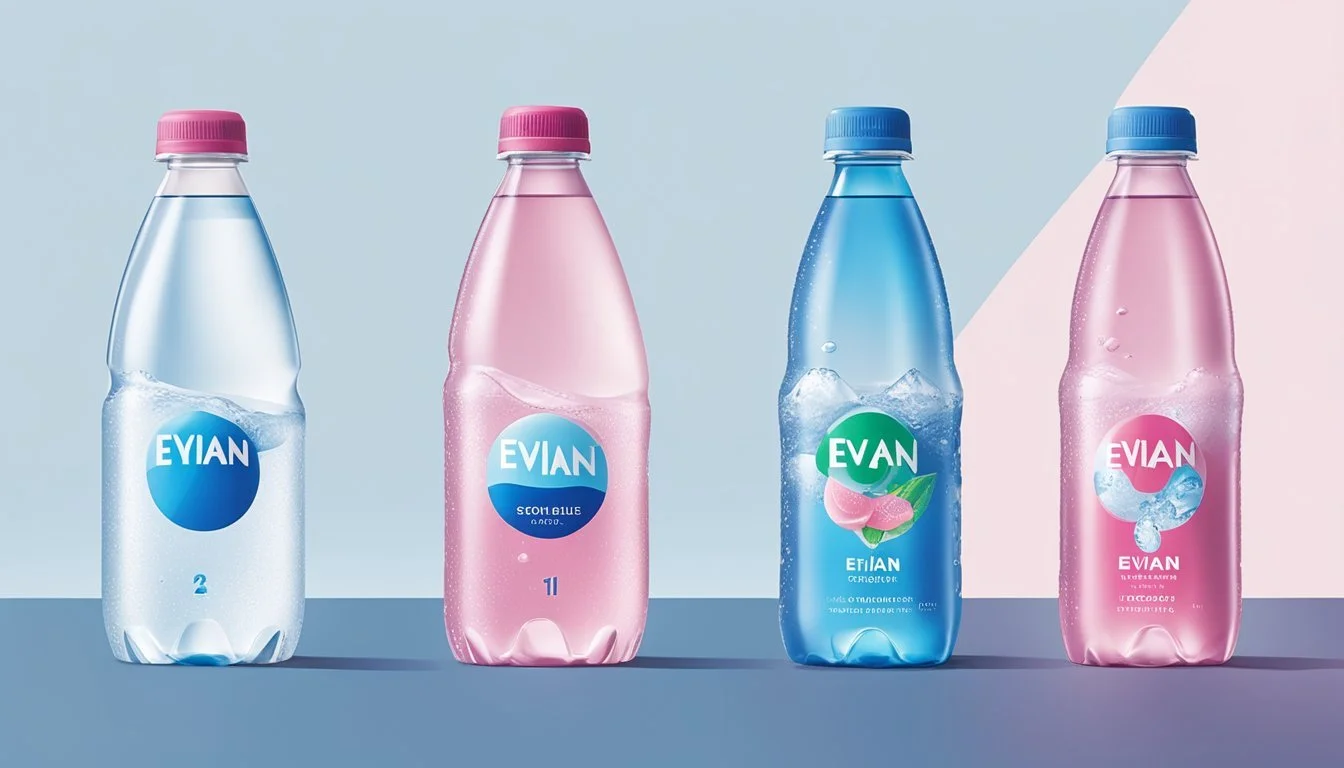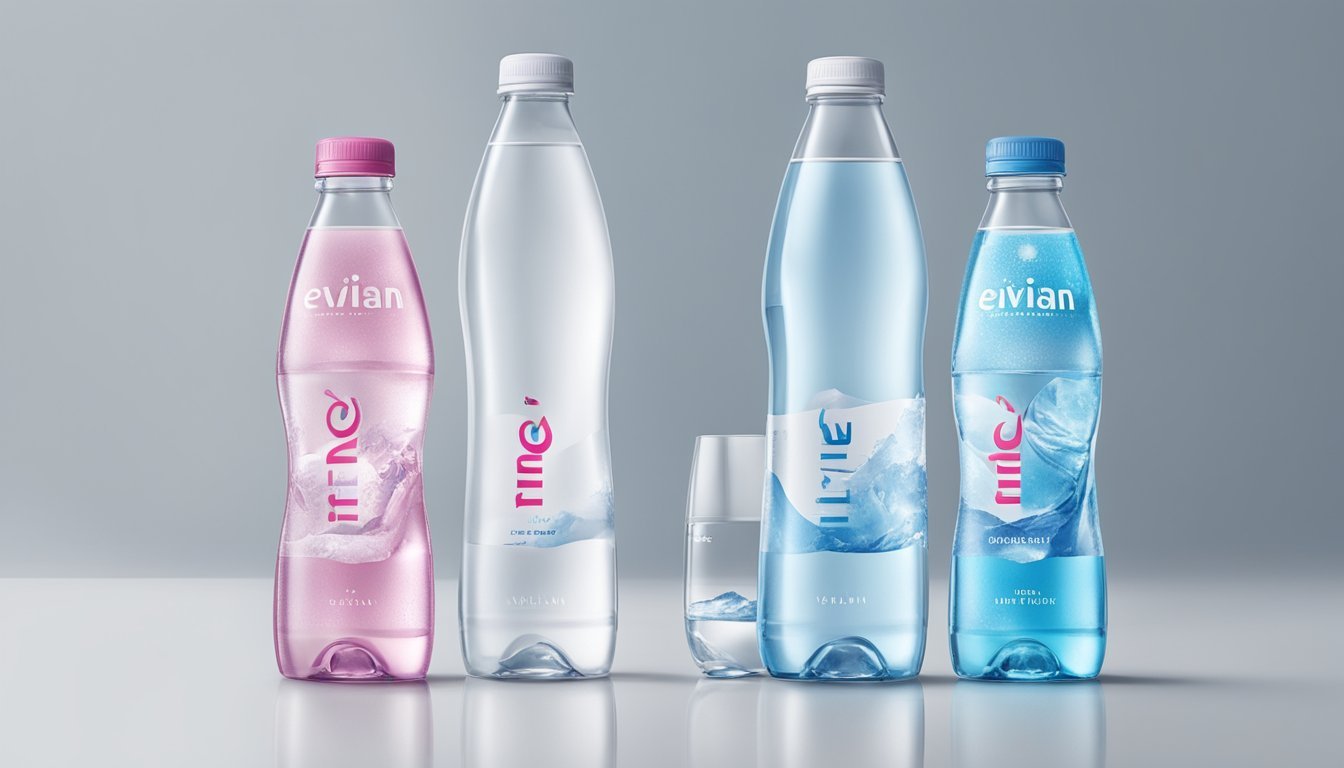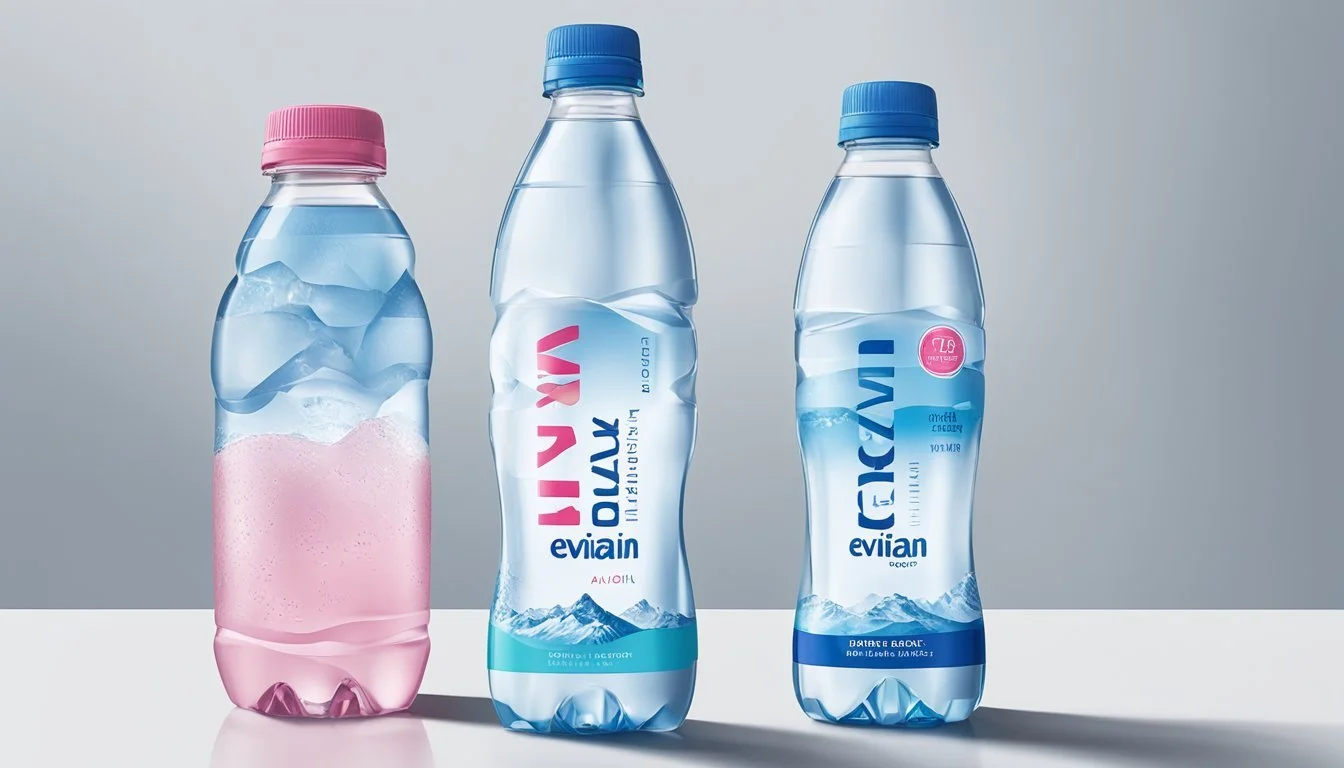Evian vs. 7-Select
Which Bottled Water is Better? Expert Comparison
Choosing the right bottled water can be a challenge with so many options available. When it comes to selecting between Evian and 7-Select, the decision often boils down to personal preference and essential factors like taste, source, and branding. Evian is sourced from the French Alps and is renowned for its crisp, clean taste and natural mineral content, making it a favorite among premium water brands.
In comparison, 7-Select is a more economical choice often found in 7-Eleven stores. It provides a convenient and budget-friendly option for those on the go. While 7-Select may lack the prestige and mineral-rich profile of Evian, it offers a straightforward hydration solution without the frills.
Deciding which is better depends largely on what the consumer values more: the pristine and reputed quality of Evian or the accessible and affordable nature of 7-Select. Both have their merits and serve different market needs effectively.
Understanding Bottled Water
Bottled water encompasses a variety of types, each defined by its source, treatment methods, and regulatory standards. Key factors include the origin of the water, the methods used to purify or treat it, and the regulations ensuring its quality.
Types of Bottled Water
There are several types of bottled water available on the market:
Spring Water: Sourced from natural springs, it often contains minerals.
Mineral Water: Contains natural minerals and must meet specific mineral content regulations.
Purified Water: This is water that has been mechanically filtered or processed to remove impurities.
Distilled Water: Created through distillation, it’s devoid of minerals.
Alkaline Water: Has a higher pH level, often achieved through ionization.
Sparkling Water: Carbonated either naturally or by adding carbon dioxide.
Each type has distinct characteristics and uses, from hydration to specific health needs.
Water Source and Origin
The origin of bottled water can significantly influence its composition and taste. Natural spring water is drawn from protected underground sources. Mineral water comes from mineral-rich springs and must contain specific levels of minerals such as calcium and magnesium.
Purified water can originate from various sources, including tap water, with contaminants removed through rigorous filtration processes. Distilled water is often derived from municipal sources but undergoes distillation to remove impurities. The source's geography, such as mountainous regions for natural springs, often determines the water's mineral content and taste profile.
Purification and Treatment Methods
Different treatment methods are used to ensure bottled water's safety and quality:
Reverse Osmosis: Removes contaminants by forcing water through a semi-permeable membrane.
Distillation: Boils water to steam, then condenses it back into liquid, leaving impurities behind.
Ozonation: Uses ozone gas to disinfect water, effective against bacteria and viruses.
Ultraviolet (UV) Light: Kills bacteria and viruses without chemicals.
Electrodialysis: Removes dissolved minerals and salts using electrical currents.
These methods ensure the removal of pathogens, chemicals, and other impurities, maintaining the intended quality whether it's for purified drinking water or mineral-rich options.
Regulatory Standards and Quality Reports
Bottled water quality is strictly regulated to protect consumers. In the United States, the Environmental Protection Agency (EPA) oversees tap water, while the Food and Drug Administration (FDA) regulates bottled water. Additionally, the International Bottled Water Association (IBWA) provides guidelines and audits for member companies.
Quality reports on bottled water include testing for contaminants, mineral content, and pH levels. Such reports, often publicly available, help consumers make informed choices. Regular monitoring and compliance with these standards ensure that bottled water remains safe and reliable for consumption.
Comparative Analysis of Evian and 7-Select
This section compares Evian and 7-Select bottled water across several factors, including brand history, water source, composition, purification processes, taste profile, packaging, environmental impact, and price.
Brand Overview and History
Evian is a well-known luxury brand, part of Danone Group, sourced from the French Alps. Established in 1826, it has built a reputation for high mineral content and purity.
7-Select, a 7-Eleven product, targets convenience and accessibility. It’s a newer entrant in the bottled water market, emphasizing affordability and availability in numerous locations.
Source and Composition
Evian water is sourced from the Cachat Spring in the French Alps, rich in natural minerals like calcium and magnesium.
7-Select sources its water from various spring and municipal sources. It may undergo further treatment to ensure safety and consistency, but specifics about its mineral content vary by source.
Purification Process
Evian undergoes a natural filtration process over 15 years through glacial rocks, which enhances its mineral content without additional purification steps.
7-Select generally employs reverse osmosis, carbon filtration, and UV light treatment to remove impurities and contaminants. This process ensures the water is safe but may strip some minerals found in natural spring water.
Taste Profile
Evian is often praised for its smooth, slightly alkaline taste with a pH of 7.07, which appeals to many consumers' taste buds due to its mineral balance.
7-Select's taste can vary due to its different sources and purification methods. It is generally neutral and clean, which suits those who prefer a straightforward flavor without additional mineral notes.
Packaging and Environmental Impact
Evian uses PET plastic bottles that are fully recyclable, and the brand emphasizes sustainability programs to reduce environmental footprint. Their label design is sleek, highlighting the premium nature of the product.
7-Select also uses PET plastic, but the emphasis is on cost-effectiveness and convenience. The brand has fewer initiatives related to environmental sustainability compared to Evian.
Price Comparison and Accessibility
Evian is marketed as a premium product with a higher price point, reflecting its brand heritage and mineral content. It is widely available in supermarkets and online retailers.
7-Select is more budget-friendly, making it an attractive option for cost-conscious consumers. Its broad availability in 7-Eleven stores ensures easy access for various consumers.
This comparison highlights key differences that may influence consumer choices based on preferences for taste, budget, and values related to environmental impact.
Health Considerations and Consumer Preferences
When comparing Evian and 7-Select bottled water, several factors such as nutrient content, safety, and consumer preferences come into play. Understanding these elements helps in deciding which brand might be the better choice for different needs and preferences.
Nutrient Content and Hydration
Evian contains a balanced mineral composition that includes calcium, magnesium, and potassium, making it beneficial for daily hydration. Evian's pH level is approximately 7.07, indicating slight alkalinity, which can be refreshing for some consumers.
7-Select, on the other hand, offers a simpler profile with fewer minerals. This may appeal to those who prefer the taste of more neutral water. It often lacks the rich mineral content found in premium brands like Evian.
Hydration from both brands is adequate, but the mineral-rich nature of Evian might aid in replenishing electrolytes and supporting overall wellness. Calcium and magnesium in Evian contribute to bone health and metabolic functions, while the fewer minerals in 7-Select make it a lighter option.
Safety and Contaminant Levels
Safety is a primary concern when it comes to bottled water. Both Evian and 7-Select adhere to FDA guidelines, ensuring they meet the standards for safe drinking water. Evian’s source from a natural spring in the French Alps boosts its image of purity and low contamination risk.
7-Select sources its water from various locations, which might introduce variability in water quality. Nevertheless, adherence to safety protocols ensures harmful contaminants are kept at bay.
Organizations like the Environmental Working Group (EWG) and regular independent safety assessments help keep these brands accountable. Potential contaminants are regularly checked to ensure consumer safety, making both options reliable for daily consumption.
Consumer Taste and Quality Perception
Consumer preferences often hinge on taste and perceived quality. Evian is frequently praised for its smooth and slightly mineral-rich taste, which many find refreshing and unique. This distinct taste profile contributes to Evian’s popularity and premium positioning in the market.
In contrast, 7-Select offers a more neutral taste, catering to those who prefer a straightforward water flavor without mineral nuances. For some, this can be just as appealing, especially if they seek a pure and unembellished taste.
Taste tests and quality perception surveys often highlight Evian’s superior taste and brand recognition. Both brands meet high-quality standards, but consumer loyalty tends to favor Evian for its distinctive combination of taste and mineral content. This preference showcases how taste buds and brand perception shape the bottled water market.
Environmental Impact and Sustainability
Both Evian and 7-Select bottled waters have notable environmental footprints, particularly concerning their bottle manufacturing processes, recycling practices, water extraction, and their effects on ecosystems.
Bottle Manufacturing and Recycling
The production of plastic bottles for both Evian and 7-Select contributes to significant environmental concerns. The Environmental Protection Agency (EPA) notes that the manufacturing process releases a considerable amount of greenhouse gases. Evian bottles are often made from PET (polyethylene terephthalate), which is recyclable, although not all bottles end up being recycled.
Evian has taken steps towards sustainability by emphasizing recycling in their packaging strategies. They have introduced initiatives to use recycled PET in their bottles, aimed at reducing the need for virgin plastic. Contrarily, information on 7-Select’s recycling initiatives is less transparent, raising questions about their commitment to environmental sustainability.
Water Extraction and Ecosystem Effects
Evian sources its water from natural springs in the French Alps, an area known for its pristine environment. However, extensive extraction can impact local water tables and harm the surrounding ecosystem. The process must balance between meeting consumer demand and maintaining ecological stability.
Information on 7-Select’s water source is less readily available, but like Evian, excessive extraction can lead to environmental strain. The environmental impact of water extraction includes potential disruption of local ecosystems and affects public health if not managed responsibly. Therefore, transparency in sourcing and extraction methods is crucial for evaluating the true environmental impact of these bottled water brands.
Closing Thoughts
When comparing Evian and 7-Select, several factors come into play.
Taste is subjective, yet it remains a significant consideration for many consumers. Evian's natural spring water is often described as having a unique mineral profile that may not appeal to everyone. In contrast, 7-Select offers a more neutral taste, making it a safer choice for varied palates.
Cost is another critical aspect. Evian tends to be priced higher due to its premium branding and source in the French Alps. 7-Select is generally more affordable, making it accessible to a wider range of consumers.
Water Quality should not be overlooked. Evian is known for its rigorous quality controls and natural filtration process. 7-Select, while convenient, may lack the same level of stringent testing and natural source benefits.
Sustainability is gaining importance among consumers. Evian has made strides in sustainable practices, including the use of recyclable materials and reduction of carbon footprint. 7-Select, being a convenience store brand, may not have the same focus on sustainability initiatives.
Safe Drinking Water is paramount. Both brands meet safety standards, ensuring their water is safe for consumption. Yet, the source and purification process can differ greatly, influencing consumer choice based on perceived safety and quality.
Ultimately, the choice between Evian and 7-Select hinges on individual preferences related to taste, cost, water quality, sustainability, and the assurance of safe drinking water. Each brand offers distinct benefits, catering to different consumer needs and values.
More About Evian
Evian vs Mountain Valley Spring Water: Which Bottled Water is Better?
Evian vs Richard's Rainwater: Which Bottled Water is Better?
Evian vs Whole Foods Italian Still Mineral water: Which Bottled Water is Better?
More About 7-Select
7-Select vs Kirkland Signature: Which Bottled Water is Better?
Cascade Mountain vs 7-Select: Which Bottled Water is Better?
Hawaiian Springs vs 7-Select: Which Bottled Water is Better?
Icelandic Glacial vs 7-Select: Which Bottled Water is Better?
Mountain Valley Spring Water vs 7-Select: Which Bottled Water is Better?
Nestle Pure Life vs 7-Select: Which Bottled Water is Better?
Richard's Rainwater vs 7-Select: Which Bottled Water is Better?
Talking Rain AQA vs 7-Select: Which Bottled Water is Better?
Whole Foods Italian Still Mineral water vs 7-Select: Which Bottled Water is Better?





